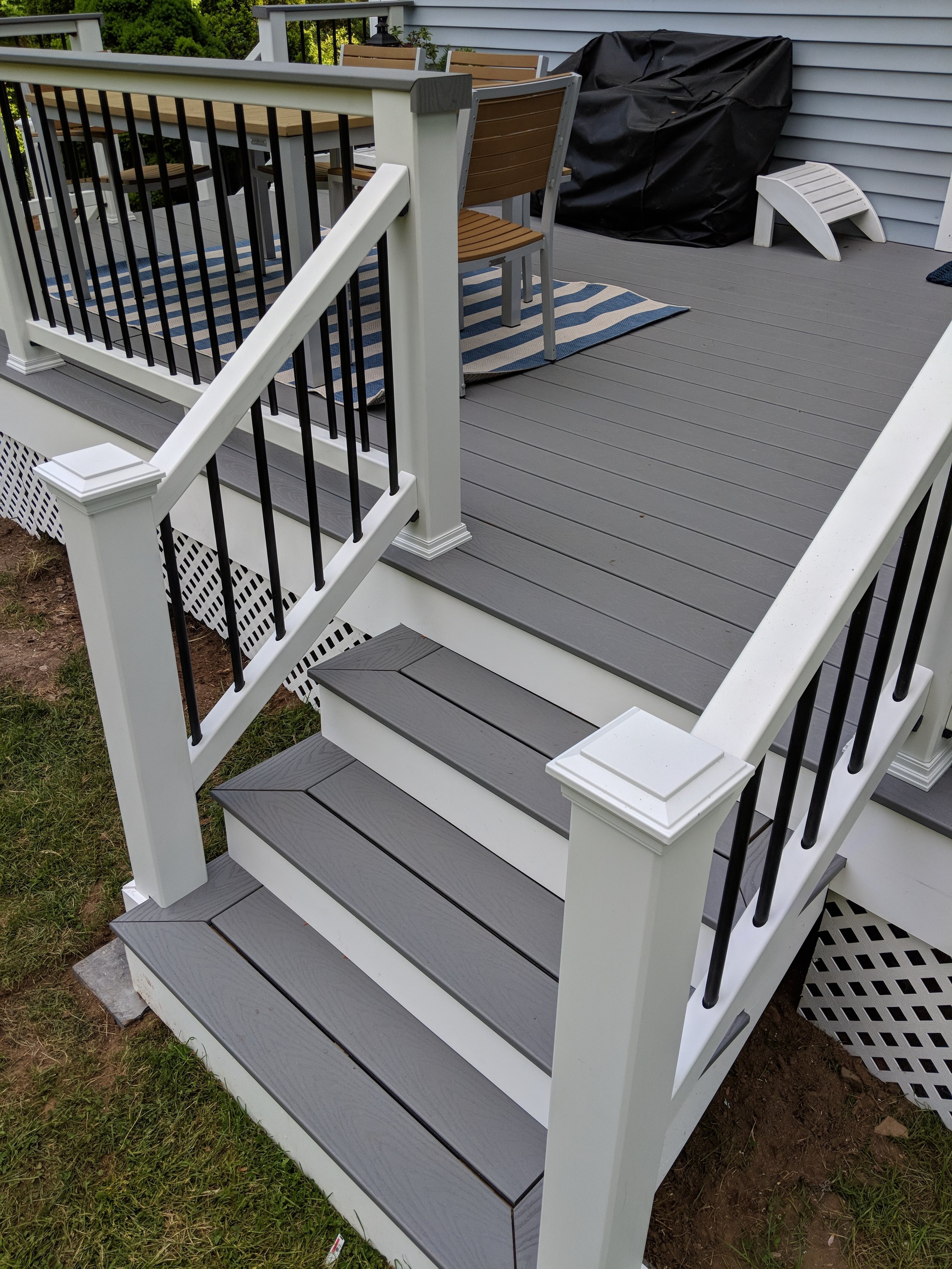

The average lifespan of composite railing is around 20-25 years, but the outcome heavily depends on the quality of the composite and how well it’s maintained.

As a result, aluminum railing often offers better protection against scratches and dents. However, it’s important to read the fine print of a given product’s lifetime warranty because it may include certain caveats and conditions that may void the warranty.Īluminum or composite deck railing are both exceptionally well suited to enduring the elements, but aluminum is a physically harder material. Most manufacturers offer at least a 20-year warranty, but it’s not uncommon to find lifetime warranties for aluminum railing because the material is exceptionally resilient. The average lifespan of aluminum railing is difficult to gauge. Most manufacturers offer touch-up kits that are nearly impossible to see when applied correctly should the powder coated finish get scratched. Lastly, it’s important to keep aluminum coated and protected from the elements. Keeping aluminum railings in pristine condition may require power washing twice annually, but regular care can greatly reduce the intervals between washing. It’s important to follow manufacturers’ guidelines when selecting cleaning products.Īluminum railing can also be damaged by using abrasive materials, like steel wool pads. However, powder coated surfaces can interact with certain cleaning agents.
#TREX TRANSCEND DECK RAILING FREE#
Rails will need to be kept free of debris and occasionally cleaned of environmental contaminants using mild soaps. However, performing basic levels of upkeep is still necessary to keep aluminum railing looking its best. It’s also highly tolerant to drastic changes in temperature.

Maintenance and UpkeepĪluminum is typically given a protective coating to prevent rusting (typically, powder coating), which makes it fundamentally waterproof. Both can offer lower lifetime costs than products that require intense maintenance. Composite railing is also lower maintenance, but manufacturer warranties for composites are, at times, shorter than some aluminum products. Composites are also available in a much wider range of quality than aluminum materials, which can further affect pricing. The same factors that can drive variances in installation costs for aluminum railing also affect composites. The average cost of composite railing is around $30-$55 per linear foot. How much does composite deck railing cost? Fortunately, due to the low maintenance aluminum railing requires, the lifetime cost is often less than other materials, such as wood. hiring a contractor, and the materials chosen can all drive significant changes to installation costs. There are many factors that can dictate final installed cost of a metal deck railing. However, this price can increase considerably when accounting for installation fees. The average material cost of aluminum railing is around $40-$55 per linear foot.

Cost How much does aluminum railing cost?
#TREX TRANSCEND DECK RAILING HOW TO#
Learn more about the differences between composite vs aluminum railing, and how to pick the right railing for your project. Those are just the tip of the iceberg when it comes to examining the pros and cons of these two railing materials. For instance, aluminum railing is a bit more durable, and composites are a bit more economical in terms of costs and provide a more traditional (less contemporary) style. Both materials have their own sets of strengths and weaknesses. A fair comparison of composite vs aluminum railing involves weighing several factors and preferences.


 0 kommentar(er)
0 kommentar(er)
